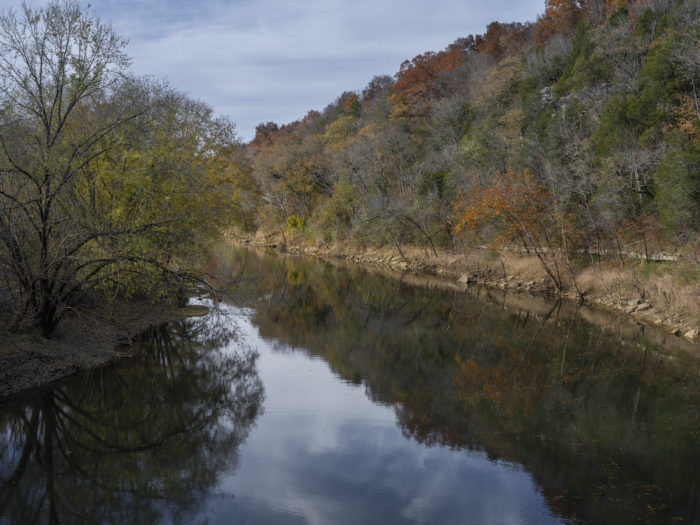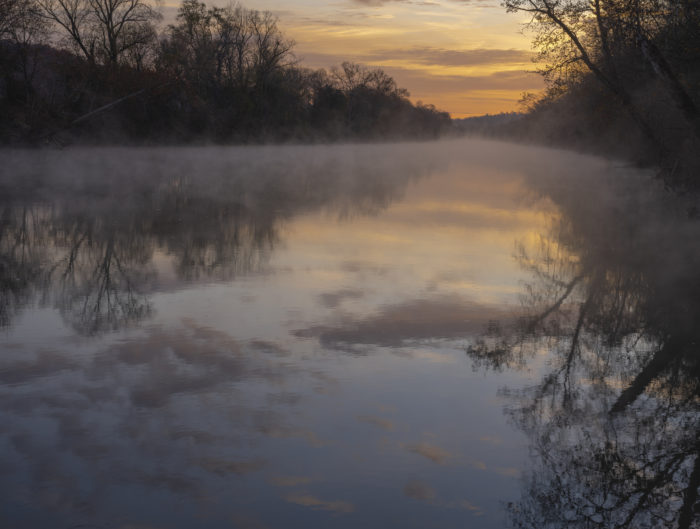Settlement protects Duck River from impacts of Middle Tennessee’s booming growth
Conservation groups, local water utilities, and state officials reached an important settlement that protects Middle Tennessee’s Duck River while providing for the needs of a rapidly growing region.
SELC represented The Nature Conservancy and the Tennessee Wildlife Federation in the case, which led to a settlement that upholds the state’s ability to responsibly manage water withdrawals from the river. The settlement is an important victory for conservationists, anglers, paddlers, nearby communities, and for everyone who enjoys and relies on one of the country’s most unique waterways.
The “crown jewel” of the Tennessee river system

The case centered around the Duck River, which is the most biodiverse river in North America. The river’s basin supports more species than is found in all of Europe’s rivers combined, and its incredible wildlife populations include threatened, endangered, and unique species that are found nowhere else.
The waterway’s incredible biodiversity – along with its scenic views and thriving sport fisheries – make the Duck River the backbone of the region’s outdoor recreation economy. The river supports an estimated 150,000 anglers, kayakers, canoers, and boaters annually, and attracts outdoors enthusiasts from across the state.
“The Duck River is the crown jewel of the Tennessee river system, and this settlement will help ensure that the waterway, its exceptional wildlife, and its outdoor recreation opportunities don’t become a casualty of Middle Tennessee’s explosive growth,” SELC Senior Attorney George Nolan said. “This agreement is a great example of what can be accomplished when state officials, local utilities, and conservation groups work together to manage and protect Tennessee’s most beautiful and important natural resources.”
A significant settlement
In August 2021, the Tennessee Dept. of Environment and Conservation issued a water withdrawal permit to the Marshall County Board of Public Utility, which is planning to build a new water intake facility to keep up with Middle Tennessee’s fast-paced growth. TDEC included water withdrawal limitations in the permit, which restrict the amount of water which can be pumped from the river during times of low flow or drought and serves to protect the Duck River’s incredible wildlife and overall health.
The Duck River is the crown jewel of the Tennessee river system and this settlement will help ensure that the waterway, its exceptional wildlife, and its outdoor recreation opportunities don’t become a casualty of Middle Tennessee’s explosive growth.
George Nolan, Senior Attorney
The utility and the Duck River Development Agency appealed the permit, seeking to remove the withdrawal limitations. The Nature Conservancy and the Tennessee Wildlife Federation, represented by SELC, intervened in the case, leading to this significant settlement. The agreement upholds TDEC’s ability to manage water withdrawals and reinforces the state’s ability to include reasonable water withdrawal limitations in future permits on the Duck River and other waterways.
In addition to keeping withdrawal limitations in place, TDEC also agreed to participate in or perform additional research to better understand the impact stream flows can have on the Duck River and its incredible wildlife. Those studies will help state officials, conservation groups, and other stakeholders better understand and protect one of the state’s most special and dynamic waterways. TDEC will reevaluate MCBPU’s withdrawal limitation after the agency completes this additional study of the flow needs of aquatic wildlife in the river.
A need for continued collaboration

While this settlement is a step toward responsible management of the Duck River, more collaboration is needed to ensure the long-term health and protection of the river’s thriving ecosystem. Several other water utilities currently have plans to significantly increase the amount of water they withdraw from the Duck River. Those combined increases could lead to an additional 19.7 million gallons of water being pumped from the Duck River each day – a 33 percent increase above amounts currently authorized by the State.
It is critically important for state leaders to take a holistic approach to managing water consumption from Tennessee waterways. The Duck River deserves thoughtful management and protection, and TDEC should not hesitate to use withdrawal limitations when necessary to safeguard such a pristine and biodiverse waterway.
